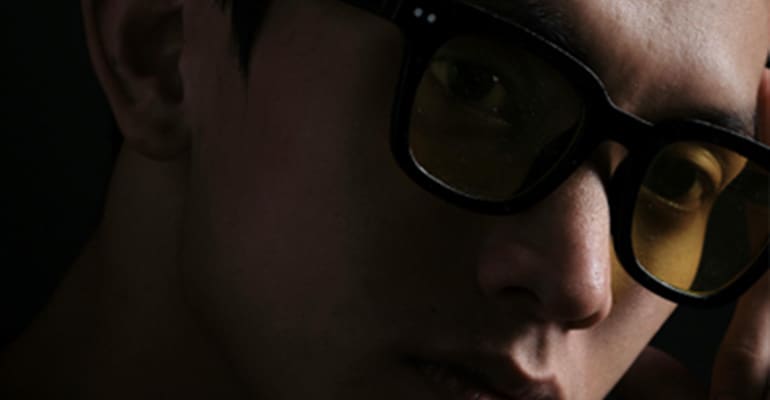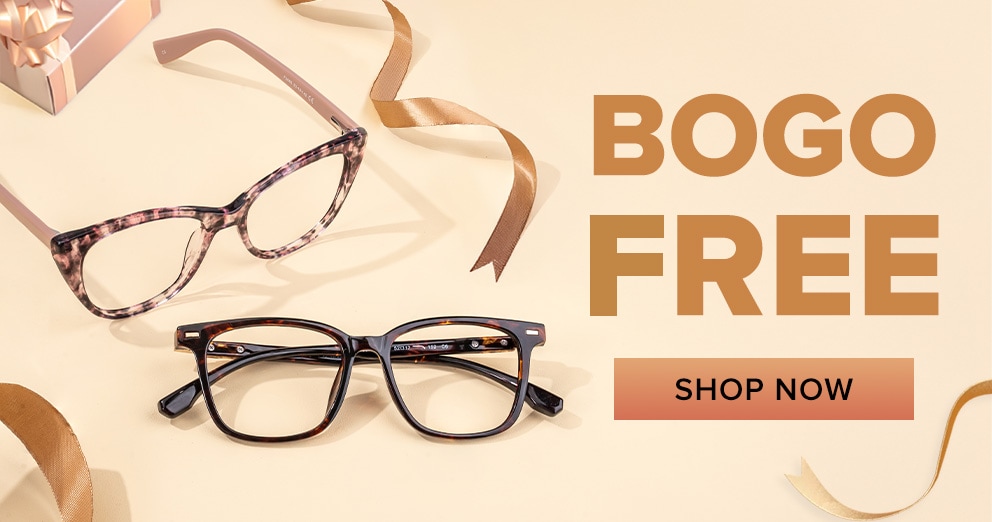What are Night Vision Glasses? A Complete Guide to Your Secret Weapon for Safe Nighttime Adventures
May 31, 2024

If you’re a fan of espionage (spy) films or grew up watching excellent cartoons, you probably have a rough idea of what night vision glasses do. If you’re a bit of a night owl, you’ve probably even contemplated getting yourself a pair of these night-vision-enhancing glasses.
Before you do, though, you need to understand what exactly night vision glasses are and what the best sunglass lens colors for driving are. We’re not talking about high-grade military night vision goggles, but rather regular yellow-lensed night glasses. We’ll discuss what they do, who needs them, and whether there are drawbacks to wearing these glasses.
We have the details, so read along.
What are Night Vision Glasses?
Simply put, night vision glasses are eyewear with lenses that are yellow-tinted and usually coated in an anti-reflective material. These special modifications are said to give the wearer improved night vision, especially when driving or cycling. In fact, while they have diverse use cases, most people think of them as night-driving glasses.
Night vision glasses can be purchased with or without a prescription, depending on the nature of the problem. If you have underlying eye health problems, it’s best to first consult a specialist to get the most informed diagnosis and prescription.
How do Night Vision Glasses Work?
Night vision glasses are fitted with a yellow lens known to increase contrast, allowing you to see objects better in low-light situations.
The yellow lens filters out blue light, which usually causes more glare than most other visible light. By eliminating blue light, night vision glasses also enhance the yellowness of the surroundings, giving the illusion that things are brighter.
Additionally, the anti-reflective coating reduces the amount of light that reflects off the surface of the lenses, allowing more light to pass through thereby enhancing your night vision.
Are Night Vision Glasses Effective?
Yes and no. They are effective, but only in very specific circumstances.
Ironically, night vision glasses are great in daytime and low-light conditions like dawn and dusk, fog, haze, and overcast skies—the yellow lenses create sharper contrast, allowing you to see surrounding and distant objects better. At night, the anti-reflective coating is the star of the show, helping reduce glare from oncoming traffic and external light sources. If you can get yours with a polarized tint, you can also reduce glare from light bouncing off wet dark roads.
As far as night driving goes, a recent study reported that there was no substantial improvement in driving abilities when a test group wearing night vision glasses and a control group without were put through a simulation. The reason for this is that yellow lenses limit not just blue light but light in general, which impacts visibility. However, in low light conditions, they are the best alternative, even compared to amber and copper-toned lenses, which filter more blue light but overall let in less light.

When Do You Need Night Vision Glasses?
There are a handful of conditions that would lead one to consider acquiring night vision glasses. This article is not a substitute for a proper consultation with an eye doctor, but it does offer a reference point for what you’re probably going through.
Here are the conditions that would warrant a person getting night vision glasses:
Improving Night Driving
Night driving requires turning your headlights on, which sometimes blinds drivers on the oncoming lane. Drivers might also struggle to read the dash or navigation system. In addition, street lights, traffic lights, and certain building lights can cause a glare that makes it difficult to accurately perceive the driving environment.
Drivers that frequently encounter such situations could benefit from the anti-glare properties of night driving glasses, and to some extent, the heightened contrast from the yellow lenses.
Improving Vision in Poorly Lit Spaces
The yellow tint on night vision glasses creates greater contrast and sharper definition, which can marginally improve vision in low-light spaces. For example, when reading under a desk lamp, you’ll experience less strain with nightglasses on.
Countering Certain Eye Disorders
Your failing eye health could be the reason you’re having problems with your night vision. If you suspect that you might be facing any of the below conditions, clear corrective lenses with an anti-reflective coating like our Blue Block Pro might enhance your night vision. The conditions include:
Nyctalopia: People with nyctalopia have perfect vision in daylight but have difficulty seeing or perceiving objects in dim or low light.
Astigmatism: A treatable condition where the irregular shape of a person’s eye (the cornea or lens) causes blurred vision and nearsightedness. The condition causes a person to experience increased glare and streaks around light, especially at night.
Post-laser eye surgery symptoms: You may develop sensitivity to light following eye surgery or experience blurry vision, which would necessitate wearing night vision glasses.
Night vision glasses might offer some relief, but the underlying condition should be addressed by an eye specialist.
Managing Environmental Conditions
Dust is the enemy, whether it's smudging up your windshield or getting blown into your eye. Night vision glasses first and foremost create a barrier between your eye and any possible debris. Secondly, dusty windshields amplify glare, which you can counter with a good pair of night vision glasses.
What Should You Consider Before Buying Night Vision Glasses?
If you’re comfortable with the perceived benefits of night driving glasses, here are a few things to consider before getting yourself a pair.
Get a prescription: Consult with an eye specialist to identify the right glasses for your specific condition.
The type of lens: For non-prescription glasses, ensure that besides the yellow lens, the glasses are covered in an anti-reflective material, a polarized tint, and UV-treated to get the most out of your sunnies. People with eye conditions, alternatively, benefit from corrective clear lenses, with blue block, and an anti-reflective coating.
Get the right fit: Maximize on comfort by following our size guide to get your perfect fit, and take advantage of our virtual try-on to see how you’ll look in your new sunnies.
Brand: Eyeglasses are accessories that directly impact your health, and you want to guarantee quality and effectiveness, which starts with picking out a trusted brand.
Price: Our night vision glasses should cost you anywhere between $20-$40, depending on the design and customization.
In Summary: Should You Get Night Vision Glasses?
Yes. Night vision glasses have their charm: they reduce eye strain and promote sharper vision in low light conditions. However, it’s important to note that they do not improve eyesight. Therefore, consider the underlying condition and use case before deciding to take them up as a solution.
For a person whose main concern is glare from oncoming traffic or getting blinded by streaks around lighting on your daily commute, night vision glasses might come in handy. However, if you have an actual eye health condition, it would be wiser to seek out a specialist and get corrective lenses or alternative forms of treatment.
